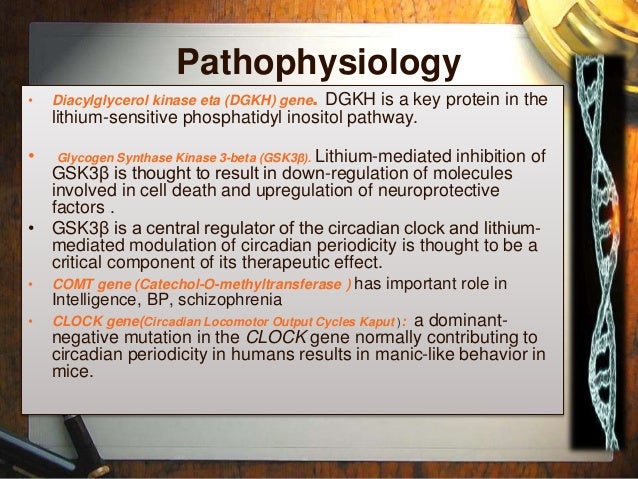
Bipolar Disorder Pathophysiology. Bipolar disorder is a chronic or episodic which means occurring occasionally and at irregular intervals mental disorder. The bipolar disorder causes from biological differences neurotransmitters hormones and genetics. Authors joshua d rosenblat 1 2 roger s mcintyre 3 4 affiliations 1 department of psychiatry. Bipolar mood or affective disorder is characterized by recurrent episodes of mania and depression in the same patient at different times.
Earlier known as manic depressive psychosis mdp 3. The pathophysiology of bipolar disorder or manic depressive illness mdi has not been determined and no objective biologic markers correspond definitively with the disease state. Bipolar disorder is a chronic or episodic which means occurring occasionally and at irregular intervals mental disorder. Bipolar disorder and immune dysfunction. Bipolar disorder bipolar disorder also known as manic depressive illness is a brain disorder that causes unusual shifts in mood energy activity levels and the ability to carry out day to day tasks. Bipolar disorder sometimes is called manic depressive disorder or manic depression which are older terms.
The bipolar disorder causes from biological differences neurotransmitters hormones and genetics.
It can cause unusual often extreme and fluctuating changes in mood energy activity and concentration or focus. Authors joshua d rosenblat 1 2 roger s mcintyre 3 4 affiliations 1 department of psychiatry. Neurochemical factors in bipolar disorder bipolar disorder is primarily a biological disorder that occurs in a specific area of the brain and is due to the dysfunction of certain neurotransmitters. Bipolar disorder and immune dysfunction. The bipolar disorder causes from biological differences neurotransmitters hormones and genetics. Bipolar disorder bipolar disorder also known as manic depressive illness is a brain disorder that causes unusual shifts in mood energy activity levels and the ability to carry out day to day tasks.